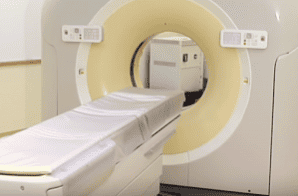
Radiation overdoses from CT, or CAT, brain perfusion scans have injured more than 400 people across the country. If you or a loved one suffered hair loss, skin reddening, headaches, memory loss and confusion after a CT brain perfusion scan, you may have been a victim of a radiation overdose. Radiation overdoses increase your lifetime […]

Radiation overdoses from CT, or CAT, brain perfusion scans have injured more than 400 people across the country. If you or a loved one suffered hair loss, skin reddening, headaches, memory loss and confusion after a CT brain perfusion scan, you may have been a victim of a radiation overdose. Radiation overdoses increase your lifetime risk of cataracts, cancer and brain damage.
Our CT scan radiation overdose lawyers are investigating these incidents, and we expect that many more victims and hospitals will be implicated in this scandal. The makers of these CT scan machines and the medical facilities where these procedures were performed need to be held accountable for the pain and suffering they have caused so many people.
If you or a loved one were injured as a result of a CT scan radiation overdose, you may be eligible to receive compensation for medical bills, lost wages, and pain and suffering, as well as medical monitoring for long-term health problems related to radiation poisoning. We are offering a free lawsuit consultation to the victims of CT scan radiation overdoses and their families. To protect your legal rights, we urge you to contact one of our CT scan radiation overdose lawyers today.
The US Food & Drug Administration (FDA) began investigating CT scan radiation overdoses in the summer of 2009, and issued two alerts on the subject in October and December of that year. According to those alerts, machines involved in the botched CT scans, made by General Electric and Toshiba, had been wrongly calibrated and subjected patients who underwent brain perfusion scans following a stroke to excessive doses of radiation.
At least eight hospitals are known to have subjected patients to excess amounts of radiation. So far, radiation overdoses are known to have occurred at several California hospitals, including: Cedars-Sinai Medical Center, Providence Saint Joseph Medical Center in Burbank, Glendale Adventist Medical Center, Los Angeles County -U.S.C. Medical Center, Bakersfield Memorial Hospital, and an unidentified hospital in San Francisco. Other hospitals where CT brain perfusion scan patients received radiation overdoses include South Lake Hospital in central Florida and Huntsville Hospital in Alabama.
Most of the known overdoses, including the biggest, occurred on scanners made by GE Healthcare. At two hospitals that use Toshiba scanners — Los Angeles County-U.S.C. and South Lake in Florida — officials said the manufacturer suggested machine settings that ultimately produced too much radiation.
According to the FDA alerts, patients involved in these incidents had received eight times the regular dose of radiation during CT brain scans. However, thanks to a New York Times investigation, we now know that in some instances, patients received even higher doses. In the case of Florida’s South Lake Hospital, an unknown number of patients received doses up to 40 percent higher than usual. At Huntsville Hospital in Alabama, CT brain perfusion scan patients received 13 times the amount of radiation generally used in the tests.
Investigators are still trying to determine how these overdoses occurred. In Alabama, an inspection by GE Healthcare, maker of the scanners used there, found that technicians purposely used high levels of radiation to get clearer images. According to the New York Times, experts have called that practice “unjustified and potentially dangerous.
At Cedars-Sinai, where the overdoses also involved machines made by GE Healthcare, officials have blamed the overdoses on a feature that can automatically adjust the dose according to a patient’s size and body part. According to The New York Times, this feature was touted by GE as “a technical innovation that significantly reduces radiation dose.
Technicians at both Cedars-Sinai and Glendale Adventist utilized this feature for brain perfusion scans, but later found that when used with certain machine settings that govern image clarity, the automatic feature did not reduce the dose — it raised it. The hospitals claim that GE trainers never fully explained the automatic feature. According to The New York Times, Cedars-Sinai said GE never mentioned the “counterintuitive” nature of the automatic feature during multiple training sessions there.
For its part, GE says the hospitals should have known how to safely use the automatic feature. The company also maintains the feature has limited utility for a perfusion scan. GE also faulted hospital technologists for failing to notice dosing levels on their treatment screens, according to the Times.
Experts interviewed by the Times faulted the scanners, saying a better designed machine might have prevented the overdoses by alerting operators or shutting down when a dose got too high.
Legal Help for Victims of CT Scan Radiation Overdoses
Already, lawsuits have been filed against GE Healthcare and the medical facilities implicated in these radiation overdoses. These lawsuits are seeking compensation for patients’ medical bills and other expenses, as well as funds to monitor individuals over the long-term for health problems associated with radiation poisoning. If you or a loved one were the victim of such a CT scan radiation overdose, you may be eligible to file a similar lawsuit.
The personal injury attorneys at Parker Waichman LLP offer free, no-obligation case evaluations. For more information, fill out our online contact form or call 1-800-YOURLAWYER (1-800-968-7529).


